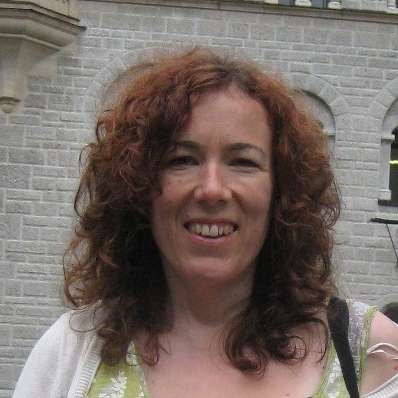Like much of Shostakovich’s work, his popular Piano Quintet, Op. 57 (1940) is full of ambiguity and contradiction. It was written at the request of his friends in the Beethoven Quartet, who had so enjoyed his first string quartet that they asked him to write something new that they could play with him – but this private piece of chamber music was a huge public success. The composer who had enraged Stalin just a few years earlier was awarded a huge prize for his quintet, and it was hailed as his best work. And at a time when war with Germany was inevitable, the quintet looks calmly back to one of the greatest German composers, transposing the form and style of Bach’s counterpoint into something unmistakably Russian.
The stridency of Shostakovich’s writing invites a harsh approach, with thundering piano and violent, sawing strings, but Northern Sinfonia’s four string players and pianist Kate Thompson opted instead for a surprising softness. The clarity that came from this made Bach’s influence unusually clear, particularly in the first two movements, in the gentle broken chords of the first movement, and the slow build-up of the fugue in the second. The structures and overall style of these two movements may have come from Bach, but the melodic themes themselves are pure Shostakovich, beautiful, bleak and intense.
The real ambiguity in this quintet comes in the mockingly jaunty Scherzo; one of those moments when Shostakovich is writing what the Soviet authorities wanted to hear, but pushing it to the limits of musical sarcasm. There was no softness here; it seemed to me that the strings were playing it with grim stoicism, grinding out their harsh chords and smothering the piano’s valiant attempt at being cheerful. The mood then lightens for the last two movements: the Intermezzo began with a beautiful violin solo accompanied by cello pizzicato, and the closing Allegretto seemed more sincerely optimistic than the Scherzo.
Judging by the enthusiastic response that the quintet received from a full hall, most of the audience had come to hear the Shostakovich, but although the preceding works in this all-Russian programme were considerably lighter, and less well-known, they showed a different side to composers best known for their flamboyant operas and ballets.
The Soldier’s Tale by Stravinsky is austerity music, written whilst the composer was exiled and penniless in Switzerland towards the end of World War I: it was originally scored for just seven instruments, to accompany a similarly pared-down stage production, and tonight was performed in the trio version prepared by Stravinsky as a thank-you gesture to the man who financed the project. The trio (for violin, clarinet and piano) loses much of the brilliant colour of the seven-player version but it was an enjoyable performance, particularly the dance movement that began with a very provocatively played tango, relaxed into a waltz and finished off with a delightfully perky ragtime.
Chamber pieces by Rimsky-Korsakov and Glinka both offered nice showcases for the Northern Sinfonia winds, with plenty of inventive solo passages for all the players. The pastoral slow movement of Rimsky-Korsakov’s quintet was a highlight, with delicate horn playing from Peter Francomb introducing a gently rolling theme that evoked the vast Russian landscape, and the interplay later in the movement between piano and winds in the imitative passages was nicely poised. The work ends with a comic Allegretto, that was played with zest, particularly by bassoonist Stephen Reay, and which ended with a very Russian accelerando for indefatigable pianist Kate Thompson. Reay was able to show the mellower side of the bassoon in the Glinka trio that followed, with solo passages that dropped right down to the bottom of the instrument’s range.
Although it was interesting to hear these lesser-known works by Rimsky-Korsakov and Glinka, in the end I had to conclude that neither composer possessed the musical depth required to write captivating chamber music – once they lose the vast orchestral palette and the broad scope of the stage, they have little to fall back on, unlike Stravinsky and to a much greater extent Shostakovich, whose chamber work challenges and rewards the listener, particularly when played as imaginatively as it was this evening.


